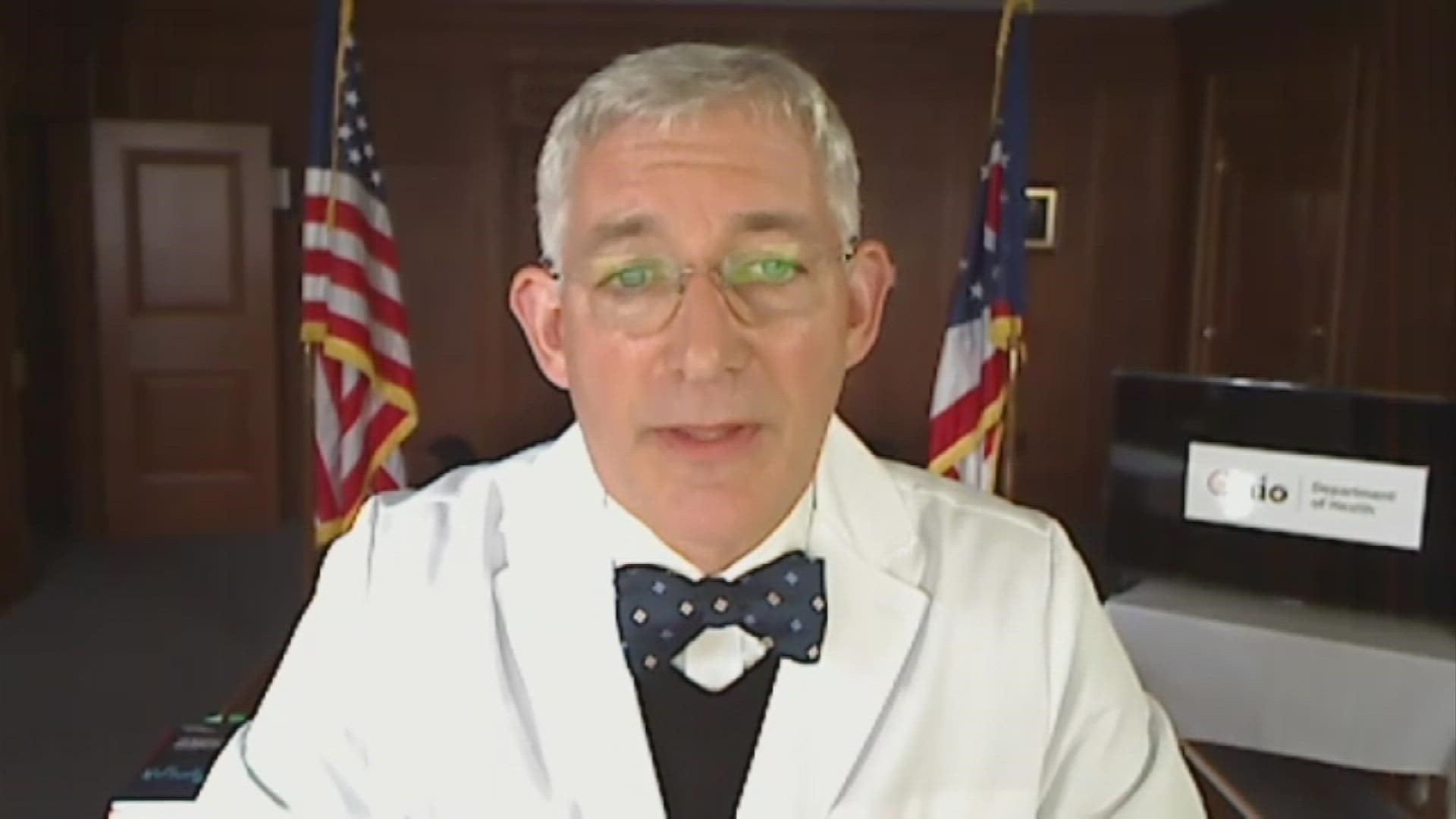COLUMBUS, Ohio — Ohio health officials say the COVID-19 pandemic is linked to an increase in kids experiencing mental health conditions.
During a briefing held by Ohio Department of Health Director Dr. Bruce Vanderhoff, Dayton Children's Hospital Chief of Psychology Mary Beth DeWitt discussed the impact COVID-19 has had on children's mental health in the Dayton area.
According to DeWitt, the hospital has reported an increase in need, referrals and visits across outpatient psychology and psychiatry services since the start of the pandemic.
Prior to the pandemic, one in five children suffered from a mental health condition or learning disability -- though DeWitt says fewer than half were receiving adequate support for that condition.
Health officials at Dayton Children's Hospital are now seeing a roughly 30 - 40% increase in mental health symptoms identified in children during the pandemic. It has had a particular impact on children who previously experienced mental health conditions or trauma, as well as poverty.
“What we’re finding is this disruption has been difficult on many kids regarding their coping and their overall adjustment,” said DeWitt.
According to DeWitt, Dayton Children’s Hospital is faced with a challenge to provide children with the necessary treatment, in part due to lack of in-person services.
“What we also know is that children are resilient and are able to have utilized the strengths that they have in their day-to-day functioning and we probably can maximize those coping strategies in our kids,” said DeWitt.
DeWitt suggests seeking out those children who are most at risk and help them cope, “While at the same time recognizing that this pandemic has been difficult on all of our mental health and well being.”
Health officials have urged parents to get their child vaccinated ever since the FDA approved Pfizer COVID-19 vaccine doses for kids ages 5 to 11. As of Thursday, more than 77,000 kids in that age group have started the vaccination process.
“However, the rise in cases -- the rise in hospitalizations -- that we are now seeing tells us we still have more to do,” said Vanderhoff.
According to Vanderhoff, one in seven patients in Ohio hospitals currently has COVID-19. In the last 21 days, virus hospitalizations have increased by 23%, with ICU admissions increasing by 15%. Health officials reported more than 6,300 new cases in a 24-hour span on Wednesday.
“That’s the highest number we’ve seen since early October,” said Vanderhoff, who urged Ohioans to stay home ahead of the holidays if they are feeling sick.
You can watch Thursday’s briefing in the player below:
________

